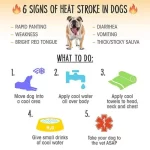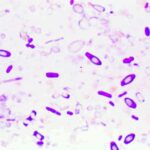Why Is My Dog Pooping Water
When a pet owner sees their dog pooping water, they may feel worried, confused, or even disgusted. While it is not a pleasant topic to discuss, understanding the possible reasons why a dog might have diarrhea can help you take better care of your furry friend and prevent more serious health issues. In this article, we will explore some common causes of watery stools in dogs, offer some tips on how to treat or prevent them, and debunk some myths about dog poop.
Subtitles:
– What does it mean when a dog has diarrhea?
– How do I know if my dog is pooping water?
– What are some common causes of diarrhea in dogs?
– How can I treat my dog’s diarrhea at home?
– When should I take my dog to the vet for diarrhea?
What Does It Mean When a Dog Has Diarrhea?
Diarrhea is defined as the passage of loose or watery stools more than three times per day. Unlike constipation, which is characterized by infrequent or difficult bowel movements, diarrhea usually indicates that something is irritating or inflaming the digestive system. In dogs, diarrhea can be acute (sudden onset and short duration) or chronic (recurring or lasting more than a few days). Some dogs may only have soft stools occasionally, while others may have explosive or bloody diarrhea that requires immediate medical attention.
How Do I Know If My Dog Is Pooping Water?
It may sound obvious, but you need to observe your dog’s poop regularly to notice any changes in consistency, color, smell, or frequency. Dogs vary in their poop habits depending on their age, breed, size, diet, exercise level, and health status. However, there are some signs that your dog might be pooping water:
– The stool is mostly liquid and lacks form or structure.
– The stool appears darker than usual (indicating blood) or lighter than usual (indicating lack of bile).
– The stool has a foul odor or smells unusually sweet or fruity (indicating a metabolic disorder or infection).
– The dog strains or whines before or during defecation, indicating pain or discomfort.
– The dog vomits, loses appetite, becomes lethargic, or shows other signs of illness.
What Are Some Common Causes of Diarrhea in Dogs?
Diarrhea in dogs can have multiple causes, ranging from minor to life-threatening. Here are some possible reasons why your dog might be pooping water:
1. Dietary changes
Dogs are creatures of habit and may not tolerate sudden changes in their food or treats. If you switch your dog’s diet abruptly, introduce new ingredients too quickly, or feed your dog table scraps or spoiled food, you may trigger diarrhea. Additionally, some dogs are allergic or intolerant to certain foods such as grains, dairy products, or chicken.
2. Infections
Bacterial, viral, and parasitic infections can affect a dog’s digestive system and cause diarrhea. Common culprits include Salmonella, E. coli, Campylobacter, Giardia, and roundworms. Dogs can contract these pathogens from contaminated water, food, feces, soil, or other animals.
3. Medications
Some medications can upset a dog’s stomach and lead to diarrhea as a side effect. Antibiotics are notorious for wiping out both the good and bad bacteria in the gut and disrupting the delicate balance of flora. Other drugs that may cause diarrhea in dogs include nonsteroidal anti-inflammatory drugs (NSAIDs), corticosteroids, chemotherapy agents, and heartworm preventives.
4. Stress
Dogs are sensitive creatures that can experience stress from various sources such as separation anxiety, socialization issues, travel anxiety, loud noises, weather changes, or household disruptions. Stress can affect a dog’s immune system and gastrointestinal motility, leading to diarrhea.
5. Poisoning
Dogs are curious and may ingest toxic substances such as chocolate, grapes, onions, garlic, xylitol (a sweetener), or human medications. These toxins can cause diarrhea, vomiting, seizures, or even organ damage or failure.
How Can I Treat My Dog’s Diarrhea at Home?
If your dog has mild diarrhea without any other signs of illness, you can try some home remedies to help soothe their digestive system and restore their hydration and electrolyte balance. Here are some tips:
1. Withhold food for 12-24 hours
Fasting your dog for a short period can give their gut a chance to rest and recover from the irritation. However, make sure your dog has access to plenty of fresh water to prevent dehydration.
2. Offer small meals of bland food
After the fasting period, start feeding your dog small amounts of bland food such as boiled rice and chicken or low-fat cottage cheese and pumpkin puree. Gradually increase the amount and frequency of meals as your dog tolerates them.
3. Add probiotics and fiber supplements
Probiotics are beneficial bacteria that can help restore the natural flora in your dog’s gut and improve their immune system. Fiber supplements such as canned pumpkin or psyllium husk can add bulk to your dog’s stool and reduce inflammation.
4. Keep your dog hydrated
Make sure your dog drinks enough water throughout the day to replace the fluids lost through diarrhea. You can also offer them an electrolyte solution or coconut water to replenish their mineral levels.
When Should I Take My Dog to the Vet for Diarrhea?
While most cases of diarrhea in dogs resolve on their own within a few days with proper care, some dogs may require veterinary attention if they have:
– Severe or bloody diarrhea
– Vomiting or regurgitation
– Abdominal pain or bloating
– Fever, lethargy, or depression
– Loss of appetite or weight loss
– Dehydration (dry gums, sunken eyes, skin tenting)
– Underlying health conditions such as kidney disease, liver disease, cancer, or diabetes
Your vet may perform some tests such as fecal analysis, blood work, or imaging to determine the cause of your dog’s diarrhea and prescribe appropriate treatment. Depending on the severity and duration of the diarrhea, your dog may need antibiotics, anti-inflammatory drugs, probiotics, fluids, or even hospitalization.
In conclusion, if you notice that your dog is pooping water, don’t panic but don’t ignore it either. Try to identify the possible causes of their diarrhea and follow some basic care guidelines to help them feel better. If your dog’s diarrhea persists or worsens despite your efforts, seek professional advice from a veterinarian who can provide more specific and effective solutions. Remember that prevention is always better than cure, so make sure you provide your dog with a healthy diet, exercise routine, socialization opportunities, and regular check-ups to keep them happy and healthy. And don’t forget to scoop up their poop and dispose of it properly – after all, it’s not just a matter of hygiene but also a legal obligation and a sign of responsible pet ownership.



